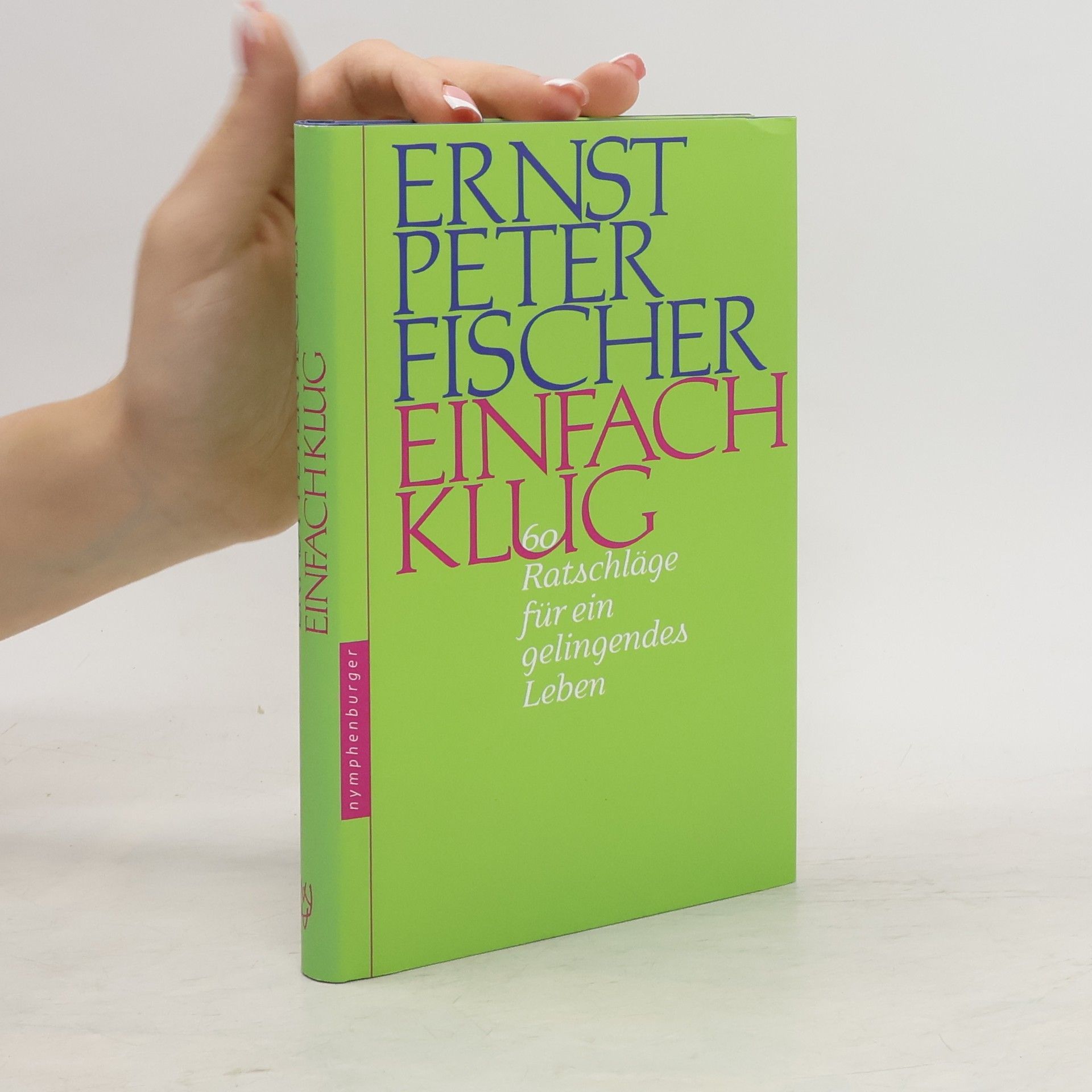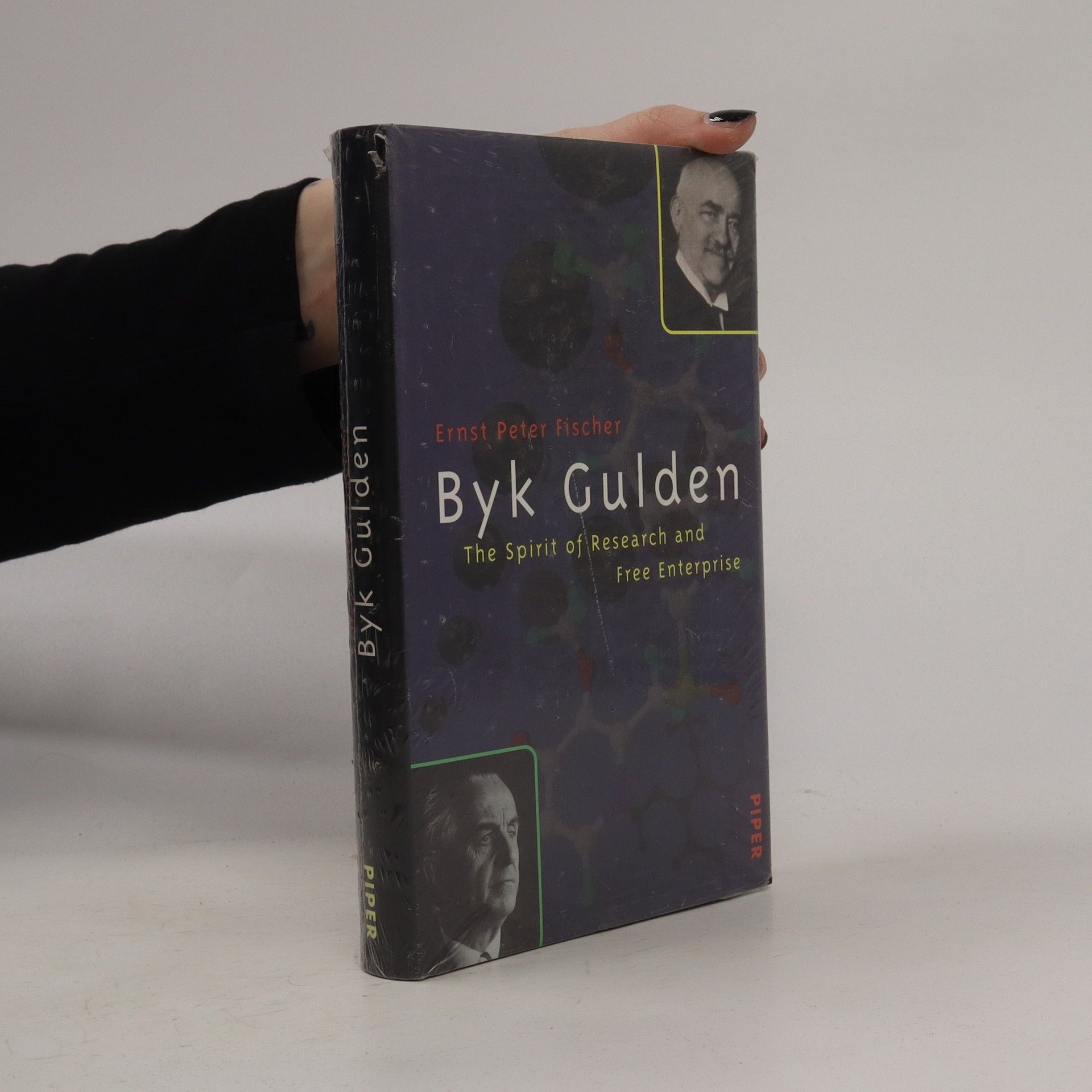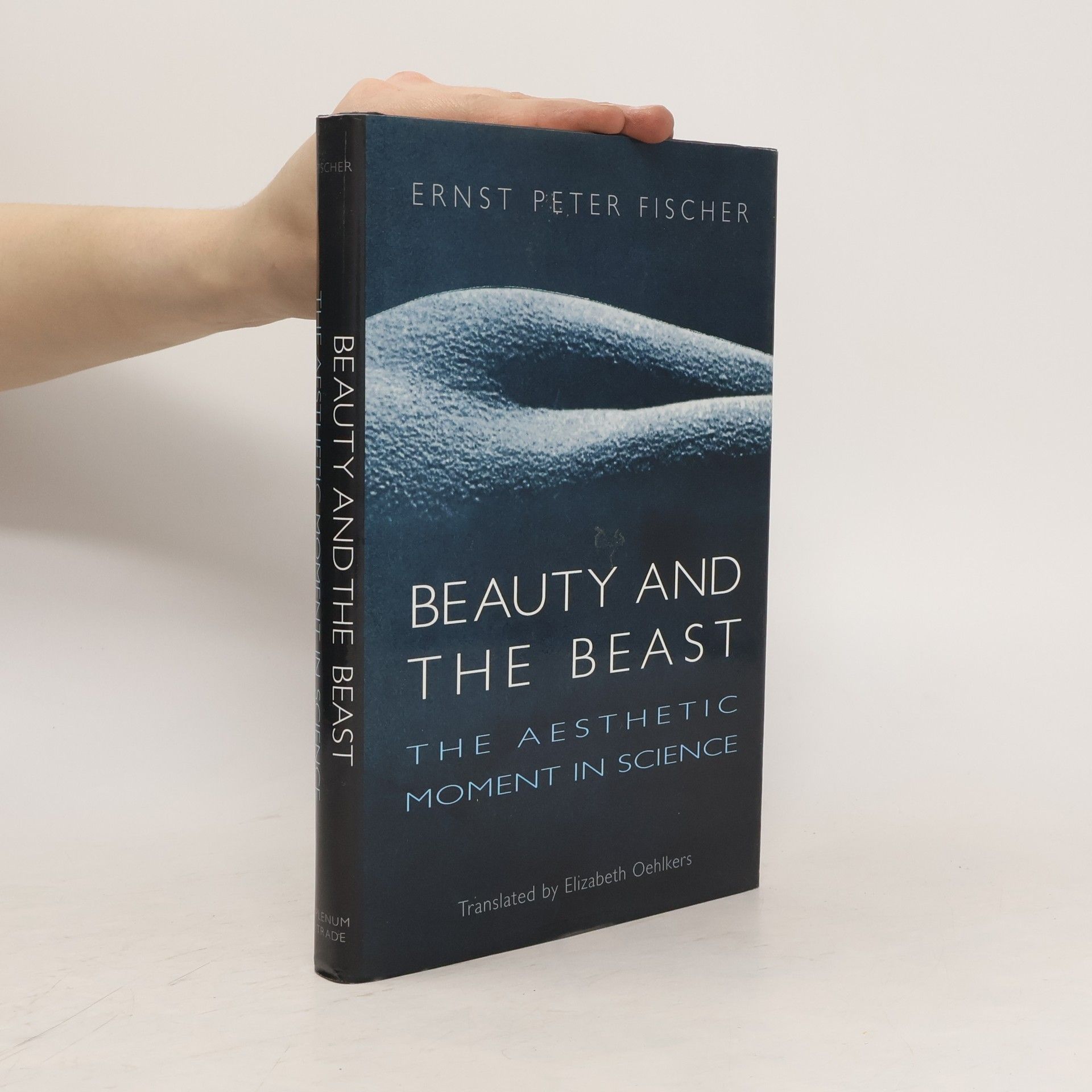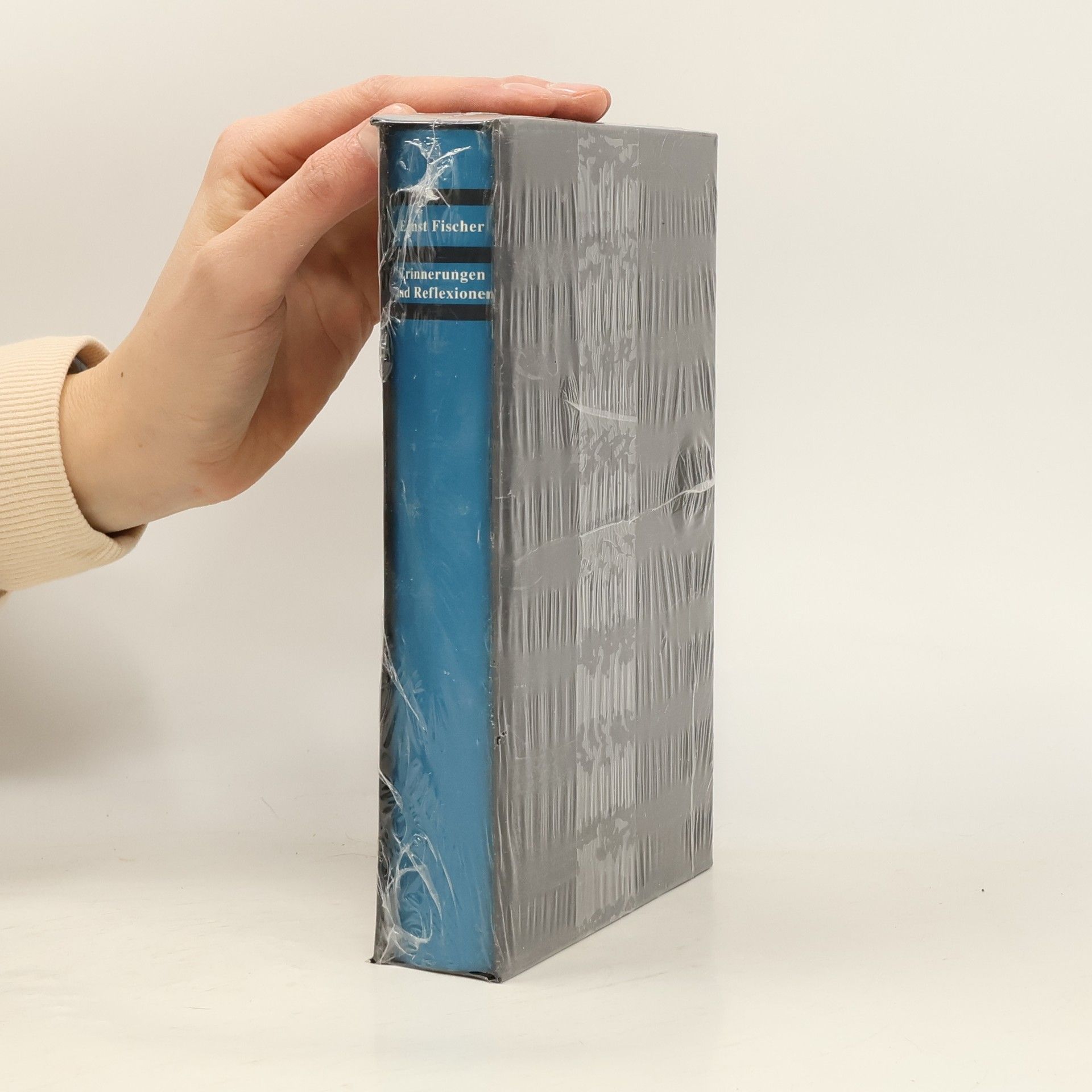In this engaging treatise, renowned scientist Dr. Ernst Peter Fischer puts forth a convincing appeal to both the public and scientists, urging us to reconsider the way we arrive at the truth in science. Encouraging us to approach science with all our senses, Fischer posits a universal aesthetic sense that spurs our imagination and leads it to profound revelations about human and cosmic nature. He delves into the lives of major thinkers and scientists from Bacon to Watson and Crick, pinpointing how they have been guided by their instinct and individual sense of beauty in the pursuit of knowledge.Showing how the aesthetic delights of thought, analysis, research, and discovery are leading components of the scientific mind and process, the author examines everything from snowflakes to the overall makeup of the time-space continuum. He explores these concepts and others including evolution and symmetry in nature, as well as imaginary numbers and irrationality as proof of beauty in science. He presents truth as a state of beauty -- and beauty as the embodiment of truth.This thought-provoking book will stir the senses and implore us to expand our vision of reality -- to use all the senses, not just our rational intellect, in determining the truth behind scientific discovery.
Ernst Fischer Boeken
- Pierre Vidal
- Peter Wieden







Set in 1774, the story follows eleven-year-old Karl Schuler, who faces another upheaval after the death of his oma. Orphaned and having already experienced significant loss, he must leave his familiar life in the Duchy of Württemberg to live with his Uncle Nicolas in Stuttgart. The narrative explores themes of resilience and the challenges of adapting to new surroundings amidst personal tragedy.
Conrad Felixmüller
1897-1977
Man kann es in der Schule etwas fürs Leben lernen. Ernst Peter Fischer, der bekannte Wissenschaftshistoriker, erzählt von den großen und einfachen Ratschlägen, die ihm ein Lehrer mit auf den Lebensweg gegeben hat. Ratschläge, die ihn bis heute begleiten und uns allen dabei helfen können, gut durchs Leben zu kommen. Und die zeigen, dass alle guten Antworten in neuen Fragen münden. Ein großartiger Denk- und Lesegenuss.
"Eine wissenschaftliche Erfahrung ist eine Erfahrung, die der gewohnten Erfahrung widerspricht." Dieser Satz des Philosophen Gaston Bachelard findet bei Fischer seine überaus unterhaltsame Bestätigung. Denn wer denkt schon, dass die Küste Großbritanniens unendlich lang ist? Oder dass eine jährliche Gehaltserhöhung von 1 000 Euro schlechter ist als eine Steigerung jedes halbe Jahr um 250 Euro? Hier streiten Wissenschaft und gesunder Verstand. Ernst Peter Fischer ebnet Ihnen den Weg zur Erkenntnis. Vom Autor des Bestsellers "Die andere Bildung"
Ernst Fischers Lebenskurve, die er hier mit bestechender Ehrlichkeit und präziser Objektivität nachzeichnet, ist gleichzeitig die Fieberkurve des 20. Wir erleben den Kampf, die Irrtümer und die Verzweiflungen eines Menschen, der keineswegs auszog, seine Zeit in die Schranken zu fordern, der vielmehr ein sensibler, genießender, der Kunst und ihrer Analyse zugewandter Mann war. Aber eben aus dieser Sensibilität heraus, aus intellektueller Redlichkeit stellte er sich der Forderung seiner Zeit.Selten ist die Zeit des Untergangs der k. u. k. Welt, ist der Kampf um ein demokratisches Österreich zwischen Hitler und Mussolini so spannungsreich geschildert worden. Für eine Generation, die all dies kaum vom Hörensagen kennt, wird hier die Entwicklung eines geistigen Freischärlers zum Sozialdemokraten und zum Kommunisten als ein Stück Geschichte erzählt.Ernst Fischers Bericht von den Jahren in der Sowjetunion schließlich ist schlichtweg sensationell; es sind keine «Enthüllungen» im Sinne der namentlichen Denunziation, wenn ihm auch glänzende Porträts von Gefährten und Mitkämpfern wie Togliatti, Dimitroff oder Herbert Wehner gleichsam «unterlaufen». Aber es ist der Bericht eines unkorrumpierten, fast naiven Mannes, der Faschismus und Diktatur floh und in die Apparatur der stalinistischen Diktatur geriet, düster, fremd, nicht greifbar, kaum definierbar.
Ernst Peter Fischer entführt uns in eine unterhaltsame Reise durch Darwins Leben und seine Evolutionstheorie. Er beantwortet zentrale Fragen zu Darwins Entdeckungen und den Kontroversen um seine Ideen. Eine aktualisierte Neuausgabe, die einen anschaulichen Einstieg in das Thema Evolution bietet.
Die Verzauberung der Welt
Eine andere Geschichte der Naturwissenschaften
Von fallenden Äpfeln bis zu den Higgs-Teilchen - eine Anleitung zum Staunen Die meisten Menschen glauben, die Naturwissenschaft habe die Welt entzaubert. Was berechnet werden könne, berge keinerlei Geheimnis mehr. Ganz im Gegenteil, sagt Bestsellerautor und Wissenschaftspublizist Ernst Peter Fischer in seinem neuen Buch - erst durch unablässiges Forschen, durch stetes Nachfragen und unbändige Neugier, kurz: durch die genaue Kenntnis der Naturwissenschaften enthüllt sich uns das wahre Geheimnis der Welt. Fischer zeigt dies am Beispiel großer Wissenschaftler und ihrer „Entdeckungen“ von Kopernikus' Weltbild bis hin zum Higgs-Teilchen. Eine gänzlich „andere Geschichte der Naturwissenschaften“ - und eine Anleitung zum Staunen.
Die gesamte Geschichte der Astronomie erzählt anhand der wichtigsten Forscher. „Der bestirnte HiMMel” hat die Menschen schon iMMer fasziniert. Ohne Fernrohr fing es an, mit Sternbildern und HiMMelssphären. Vor 400 Jahren richtete Galilei dann das erste Fernrohr zum HiMMel und entdeckte eine bis dahin unbekannte Welt. Mit Riesenteleskopen wurden danach Galaxien erkundet - bis hin zu Einsteins endlichem Universum, das keine Grenze zu haben scheint. Ernst Peter Fischer erzählt die Geschichte der wichtigsten HiMMelsforscher. Über ihr Leben bekoMMen wir Zugang zu ihren Einsichten und das spannende Abenteuer der Erforschung des Weltalls von den Anfängen bis heute breitet sich vor uns aus.


